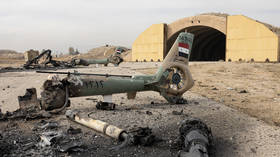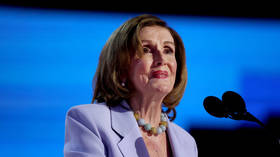Oil price drops to 18-year low on crashing global demand
The global economic slowdown has caused oil prices to fall to the lowest since 2002, with Brent crude sliding more than seven percent on Monday to just $22 a barrel. The industry is facing its largest demand drop in history.
US crude benchmark West Texas Intermediate (WTI) hit a low of $19 per barrel overnight, before picking up slightly to over $20 per barrel as of 11:50 GMT.
Oil prices have tanked by more than half in the past month, with companies cutting back and closing production as a result of the COVID-19 pandemic, combined with the OPEC+ disagreement over production cuts. Traders expect global surplus to approach 25 million barrels a day next month, which could overwhelm storage capacity worldwide within weeks.
Also on rt.com Russia says OPEC+ deal revival possible if other countries join in“This is a historic oil price collapse, and it is not done yet as the system physically runs out of places to put all the oil,” Jason Bordoff, former energy adviser to the Obama administration and the founder of the Center on Global Energy Policy at Columbia University, was cited as saying by the Financial Times.
“The pain in the shale patch is going to be severe. We will see production shut-ins accelerate,” Bordoff warned.
Oil prices have been tumbling since the beginning of this month, as the OPEC+ nations failed to agree on production cuts, and Saudi Arabia threatened to flood the market with oil.
Also on rt.com Russia’s unexpected advantage in the oil price warOn Saturday, the head of the Russian Direct Investment Fund (RDIF) Kirill Dmitriev said that a new agreement to stabilize oil markets is possible if more nations support the initiative. He told Reuters that the coronavirus pandemic has become a “perfect storm” to trigger a new global financial crisis that will result in a recession. To offset the economic fallout of the outbreak, countries should come together, including in imposing new output curbs to end the oil market turbulence.
For more stories on economy & finance visit RT's business section














